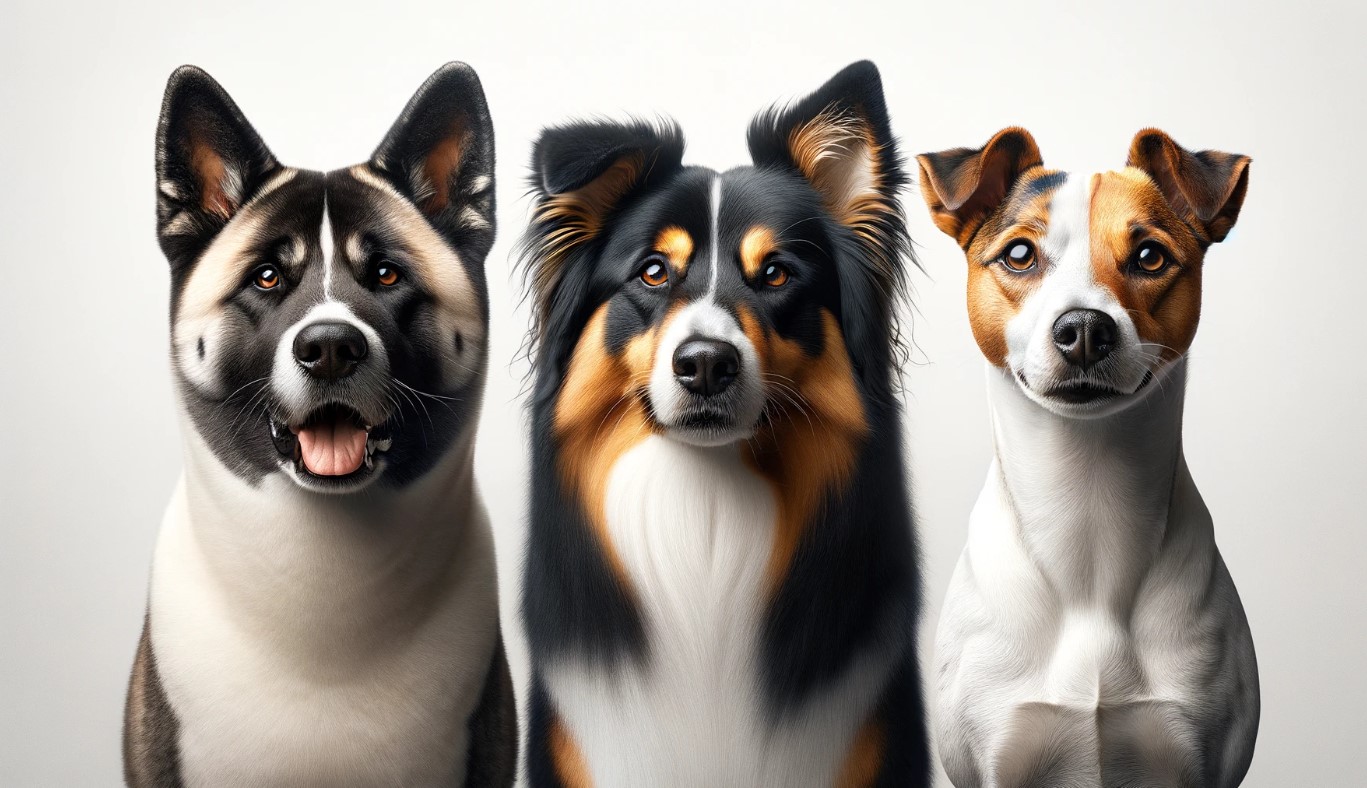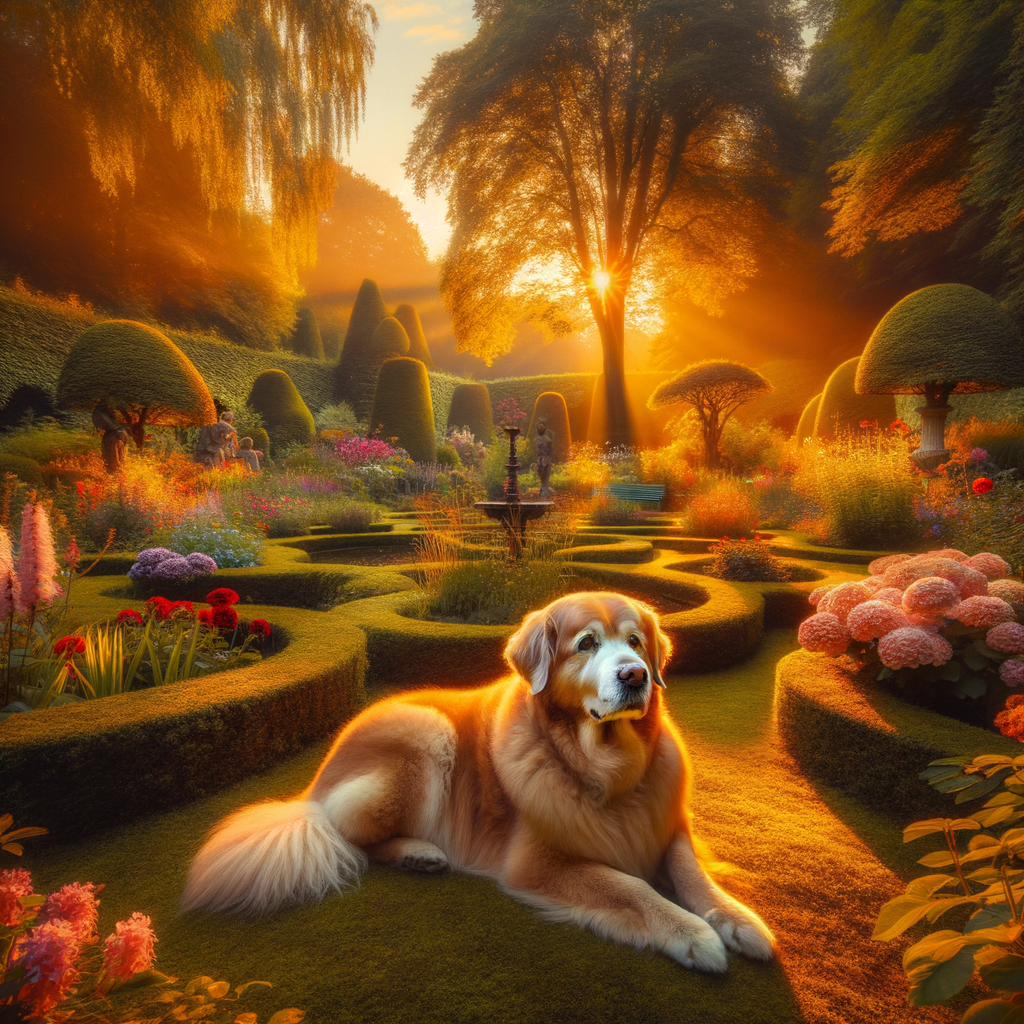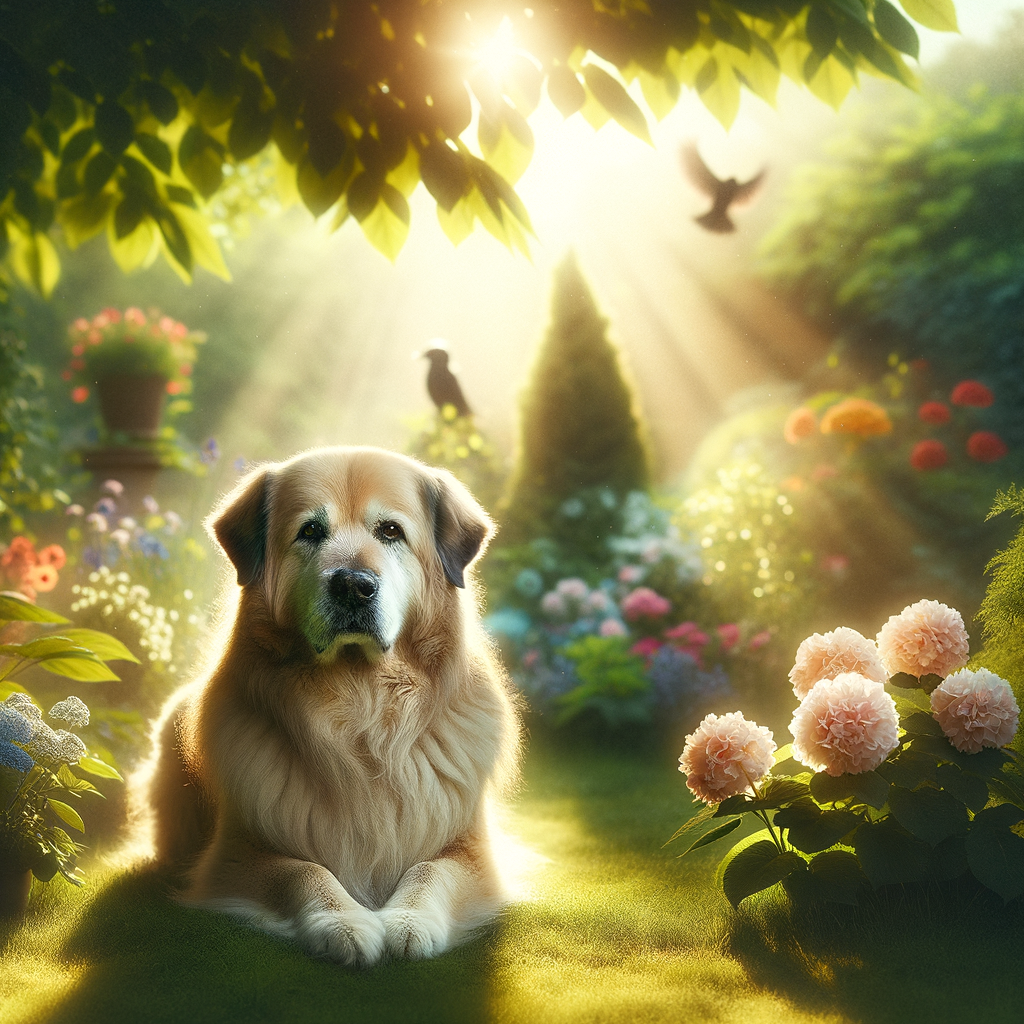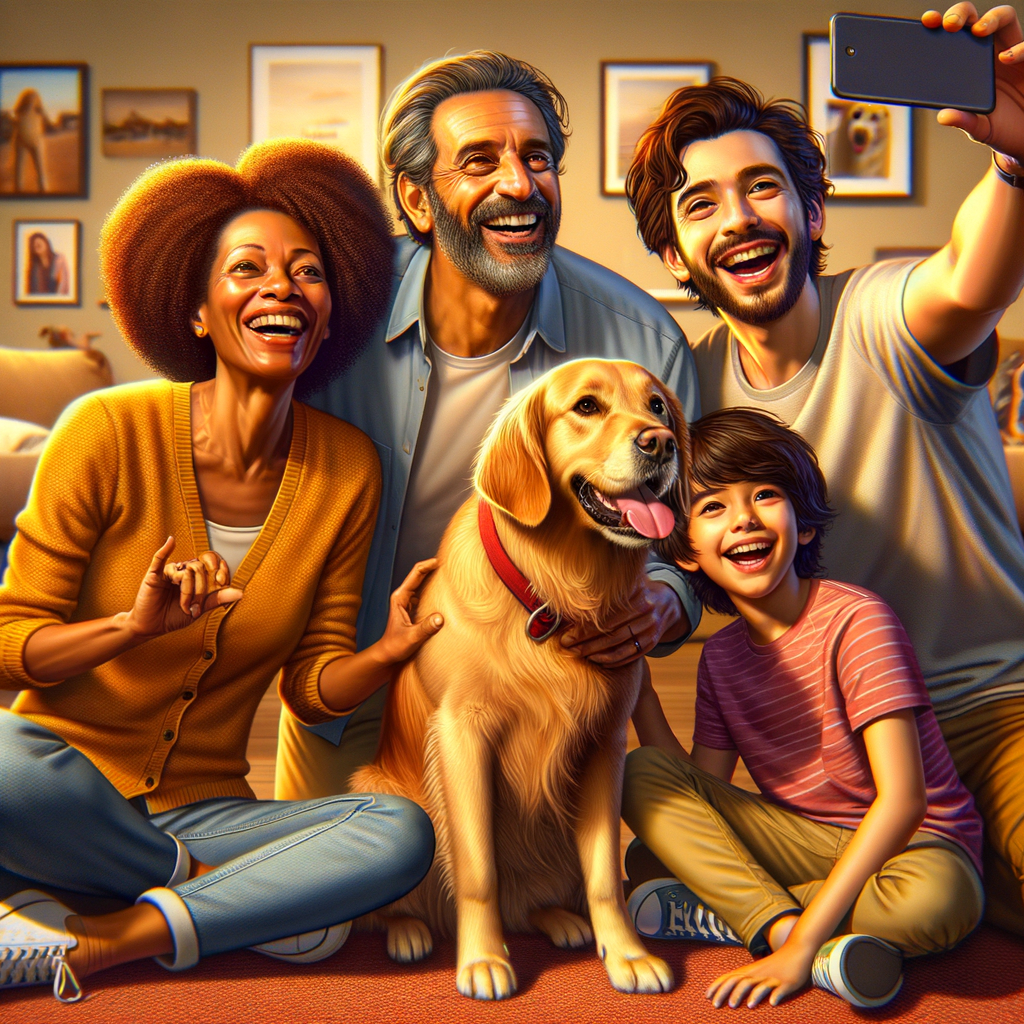As a holistic veterinarian, I’ve often been asked about the best dog breeds for seniors. But it’s equally important to understand which breeds might not be the best fit. Choosing a dog is a big decision, especially for seniors. The right dog can provide companionship, help maintain a healthy physical routine, and even boost mood. However, the wrong breed can be a handful, causing stress and potentially posing safety concerns.

Every senior person has their own unique set of needs and preferences – not just physically but emotionally and socially. Some have physical limitations that make it challenging to handle larger or more energetic dogs. Others may have a need for quiet and calm that a high-energy breed would disrupt. Still, others might not have the time or energy for grooming-intensive dogs.
There are a number of factors to consider when picking a pooch for a senior. Size and energy level are definitely key factors, but so are the dog’s grooming and maintenance needs. It’s all about finding a balance between the senior’s capabilities and the dog’s needs.
Identifying the breeds that might not be suitable for seniors is the first step to finding the perfect canine companion. Don’t worry, there are plenty of breeds out there that can offer gentle companionship, minimal grooming, and a manageable energy level. It’s all about knowing what to look for, and what to avoid. So, let’s delve into the specifics of why certain breeds may not be the best fit for seniors.

Understanding the Needs of Seniors
Let’s unlock the secret to aging gracefully with a four-legged friend! This is about more than just picking a dog – it’s about choosing a companion who compliments senior lifestyles perfectly. By understanding the needs of seniors, we can help ensure that their twilight years are spent in the joyful company of a suitable furry friend.
Physical Limitations of Seniors
As we age, our physical abilities start to wane gradually. Long walks, heavy lifting, and active playtimes can become more challenging. While the love for dogs never fades, certain breeds might prove too exuberant or demanding for seniors to handle.
Larger breeds, such as Great Danes or Mastiffs, can be difficult to manage due to their size and strength. Their sheer bulk makes them hard to move, especially in an emergency, and their daily exercise needs might be difficult to meet. On the other hand, some small breeds like Jack Russell Terriers or Shih Tzus, despite their size, are quite energetic and require active engagement, which could be exhausting for some seniors.
Also, dog breeds with a high tendency for health issues can be a concern. The emotional stress and physical demands of caring for a sick pet, not to mention the vet costs, can be overwhelming for seniors. Breeds such as Bulldogs or Dalmatians, known for their genetic predisposition to certain diseases, might not be the best choice for seniors.
Emotional and Social Needs of Seniors
While physical compatibility with a dog breed is crucial, the emotional needs of seniors are equally pivotal. Loneliness can be a serious issue for seniors, and the right dog breed can offer companionship that fills this void.
However, certain breeds may not be the best choice when it comes to emotional compatibility. Breeds known for their independent nature, like the Chow Chow or the Afghan Hound, might not provide the affection and companionship seniors might require. Terrier breeds, while full of character, can be stubborn and challenging to train, which could lead to frustration.
Moreover, the social needs of seniors should also be considered. If they enjoy frequent visits from family, especially young grandchildren, they should steer clear of breeds with a reputation for being aloof or wary around strangers or children, such as the Akita or the Shar-Pei.
In essence, while all dogs bring joy and companionship, it’s crucial to consider the physical, emotional, and social needs of seniors before welcoming a new furry member into their lives. By understanding these aspects, we can help ensure that the dog breed they choose won’t end up in the list of worst dog breeds for seniors, but will become a cherished companion, enhancing their golden years with love, loyalty, and lots of tail wags.
Factors to Consider When Choosing a Dog for Seniors
As we’ve established, selecting the best dog breed for older folks is quite crucial and requires an understanding of the specific needs and limitations of seniors. However, what are the key factors to consider when choosing a dog for seniors? The main elements to look at include the size and energy level of the dog, and the dog’s maintenance and grooming needs.
Size and Energy Level of the Dog
The size and energy level of a dog is a major factor to take into consideration when choosing a dog for seniors. Remember, the worst dog breeds for seniors are generally those that are too large, too energetic or too demanding physically.
Large dog breeds require more physical strength to handle and manage. They need more exercise and are often more challenging to control, especially if they become excited or agitated. This may pose a significant challenge for seniors, particularly those with mobility issues or physical limitations.
Similarly, dogs with high energy levels require a lot of exercise and activity to keep them healthy and happy. An active breed like a Border Collie or a Jack Russell Terrier, for instance, may require several hours of exercise every day. While these breeds may be great for younger, more active individuals, they could be overwhelming for seniors.
Maintenance and Grooming Needs of the Dog
Another critical factor to consider is the dog’s grooming and maintenance needs. Some dog breeds require regular grooming, including daily brushing and frequent professional grooming sessions, which can be physically demanding and costly.
Long-haired breeds such as the Afghan Hound or the Poodle need regular grooming to prevent their hair from matting and to keep their skin healthy. They also require regular baths and haircuts. This grooming regimen can be both time-consuming and physically strenuous, making these breeds less suitable for seniors.
On the other hand, short-haired breeds like the Beagle or the Dachshund have lower grooming needs and can be a better fit for seniors. However, it’s also essential to consider the dog’s overall health and potential breed-specific health issues. Some breeds are more prone to certain health problems, which can lead to costly vet bills and increased care needs.
In summary, when it comes to choosing a dog for seniors, it’s important to consider the dog’s size, energy level, and maintenance needs. These factors can significantly affect a senior’s ability to care for and enjoy their time with their furry companion. So, while dogs can provide excellent companionship for seniors, it’s crucial to choose a breed that matches the lifestyle and capabilities of the elderly person.
Top Breeds That May Not Suit Seniors
As you consider adding a furry companion to your home, or the home of a senior in your life, it’s essential to understand that not all breeds are suitable for elderly companions. Here’s a list of some dog breeds that may not be the best fit for seniors:
Australian Shepherd
The Australian Shepherd is a high-energy breed that requires lots of exercise and mental stimulation. They’re fantastic working dogs, but they might be too much for a senior to handle, especially those with physical limitations.
Siberian Husky
Siberian Huskies are known for their friendly demeanor, but they also have high energy levels and need plenty of exercise. They also have a thick double coat that requires regular grooming, which may be too much of a maintenance task for some seniors.
Rottweiler
Rottweilers are large and powerful dogs. They need a firm hand and consistent training, which can be physically demanding for a senior. Additionally, their size might pose a risk for seniors with balance issues.
Jack Russell Terrier
Despite their small size, Jack Russell Terriers are full of energy and require lots of physical and mental activity. If they don’t get enough exercise, they can become destructive, which can be stressful for seniors looking for a calm companion.
Dalmatian
Dalmatians are known for their endurance and energy levels. They were originally bred to run alongside carriages, which means they require a lot of exercises that may not be feasible for some seniors.
Border Collie
Border Collies are intelligent and energetic dogs that need plenty of physical exercise and mental challenges. Without these, they can become bored and destructive. This high-energy breed may not be suitable for seniors who prefer a more relaxed lifestyle.
Akita
Akitas are large dogs that require regular exercise to stay healthy and happy. They can also be somewhat aloof and wary of strangers, which means they need consistent training and socialization. Their size and potential for aggression if not properly trained make them a less suitable breed for seniors.
Remember, these are general breed characteristics, and individual dogs may vary. It’s crucial to spend time with a dog before adopting to ensure they’re the right fit for their new home. A dog’s individual personality, health, and age can also significantly influence their suitability for a senior owner.
When choosing a dog for a senior, always consider the senior’s physical capabilities, lifestyle, and personal preferences. A good match can provide companionship and significantly enhance the quality of life for both the senior and the dog.

Large Dog Breeds Not Suitable for Seniors
In the realm of dog breeds, size truly matters, especially when it comes to selecting the right companion for seniors. While large dogs can offer a sense of security and companionship, they may not be the best choice for the elderly due to several reasons. Here, we’ll delve into some large dog breeds that may not be suitable for seniors and explore the reasons why.
Specific Large Breeds That May Not Suit Seniors
Saint Bernard: Known for their massive size and gentle nature, Saint Bernards can be a handful for seniors. They can weigh up to 260 pounds, making them difficult to handle, especially for seniors with physical limitations.
Siberian Husky: These beautiful dogs are known for their high energy levels and need for vigorous exercise, which may be too much for some seniors to handle.
Great Dane: Great Danes are among the tallest dog breeds, and while they are generally friendly, their size can make them challenging for seniors to manage.
Rottweiler: Rottweilers are strong and powerful dogs. They require consistent training and socialization, which may be taxing for seniors.
German Shepherd: German Shepherds are intelligent and active dogs. They require lots of physical and mental stimulation, which can be difficult for seniors to provide.
Reasons Why These Large Breeds May Not Be Suitable
Physical Demands: Large dogs require more physical strength to handle. From walking them on a leash to lifting them in and out of cars, these tasks can be challenging for seniors with limited physical strength or mobility issues.
Exercise Needs: Large dog breeds, especially working dogs like Siberian Huskies and German Shepherds, require a lot of exercises. Seniors who lead a sedentary lifestyle may find it difficult to meet these exercise needs.
Training and Socialization: Large dog breeds like Rottweilers and German Shepherds require consistent training and socialization from a young age. This can be time-consuming and physically demanding for seniors.
Health Care: Large dogs often have specific health issues, such as hip dysplasia, which can lead to high veterinary costs. They also have shorter life spans, which can be emotionally challenging for seniors.
Grooming: Some large breeds, like the Siberian Husky, have heavy coats that require regular grooming. This can be physically demanding and time-consuming for seniors.
Remember, the worst dog breeds for seniors are not necessarily “bad” breeds. They simply require a level of care and attention that may not align with a senior’s lifestyle or physical capabilities. It’s important to consider these factors when choosing a furry companion for the golden years.
Small Dog Breeds Not Suitable for Seniors
Now, it may seem surprising but it’s not just large or high-energy dogs that pose challenges for seniors, some small breeds can be equally unsuitable. While their diminutive size might be appealing, the specific traits of these breeds can make them difficult for seniors to handle. Let’s delve into some of these not recommended dogs for seniors.
Jack Russell Terrier
Known for their boundless energy and intelligence, Jack Russell Terriers require a lot of exercise and mental stimulation. Despite their small size, they can be quite stubborn and challenging for a senior to control.
Boston Terrier
While Boston Terriers are generally known for being good with people, they can be quite active and require a fair amount of exercise. This might be a bit much for some seniors to keep up with.
Beagle
Beagles are friendly and lovable, but they are also known to be stubborn and difficult to train. Moreover, they are scent hounds and can be determined to follow a scent, which might cause problems if they get loose.
In general, when it comes to choosing a small dog breed for seniors, it’s essential to consider not just the size, but also the temperament, energy level, and maintenance needs of the breed. Each senior’s needs, abilities, and living situations are unique, so what works for one might not work for another. It’s always recommended to spend some time with the breed before making a decision. This way, any potential challenges can be identified early on.

High-Energy Dog Breeds Not Suitable for Seniors
When we think of high-energy dog breeds, images of dogs sprinting across the park, catching frisbees, and constantly in a state of play come to mind. While this level of energy can be a delight to some, it might not be suitable for seniors. The **worst dog breeds for seniors** often fall into this high-energy category. Let’s explore some specific high-energy breeds that may not suit seniors and understand why.
Border Collie
First on our list is the Border Collie. Known for their exceptional intelligence and agility, these dogs are often seen leading the pack in dog agility and obedience competitions. However, their high energy levels and need for mental stimulation make them a challenging choice for seniors. Failing to provide a Border Collie with enough physical and mental exercise can lead to behavioral issues, which could be difficult for a senior to manage.
Jack Russell Terrier
Jack Russell Terriers are small but mighty. Despite their size, they are packed with energy and have a strong hunting instinct. They require plenty of outdoor activities and mental stimulation. Without it, they might resort to destructive behaviors such as excessive barking, digging, and chewing. For a senior who prefers a tranquil environment or can’t keep up with their activity level, a Jack Russell Terrier might not be the best choice.
Siberian Husky
The Siberian Husky is a beautiful breed known for their striking blue eyes and wolf-like features. However, they are also known for their high energy levels. Originally bred to pull sleds over long distances in harsh climates, Huskies crave constant exercise. This breed also has a reputation for being stubborn and difficult to train, which might pose a challenge for seniors.
Australian Shepherd
Last but not least is the Australian Shepherd. Despite their name, these dogs originated in the United States and were bred to herd livestock. This background gives them a high energy level and a strong work ethic. They thrive on having a job to do. Without regular physical and mental stimulation, an Australian Shepherd may become bored and exhibit destructive behaviors.
In conclusion, while high-energy dog breeds have many endearing qualities, their constant need for exercise, mental stimulation, and challenges can make them some of the **worst dog breeds for seniors**. Before choosing a dog, seniors should consider their lifestyle, physical capabilities, and the dog’s energy level. It’s all about finding the right fit that will result in a happy, fulfilling companionship for both the senior and their furry friend.
Recap of the Worst Dog Breeds for Seniors
Ending our exploration into the world of canines, we’ve journeyed through the intricacies of understanding seniors’ needs, the factors to consider when selecting a dog, and an in-depth look into the breeds that may not be the best fit for seniors.
We’ve discovered that large, energetic breeds such as Siberian Huskies and German Shepherds can pose physical challenges for the elderly due to their size and high energy levels. Smaller breeds like Chihuahuas or Dachshunds, while compact, can also be a handful due to their demanding temperaments.
High-energy breeds, including Jack Russell terriers or Border collies, require constant stimulation and physical activity, which might not be feasible for some seniors. We also explored the grooming and care requirements of various breeds, emphasizing that Poodles and Shih Tzus, while charming, require significant maintenance that may be taxing for seniors.
Final Thoughts on Choosing the Right Dog Breed for Seniors
It’s important to remember that our exploration of the worst dog breeds for seniors is a general guide. Every person is unique, as is every dog. The perfect fit for one senior might be a disaster for another. It’s always essential to take into consideration individual circumstances, physical capabilities, and personal preferences.
Dogs bring a great deal of joy, love, and companionship into our lives. They can offer emotional support, be an exercise partner, and provide an overall sense of purpose. Owning a dog can also open up opportunities for social interactions, whether it’s at a dog park, in a pet store, or even just walking around the neighborhood.
However, dog ownership is a big responsibility that shouldn’t be taken lightly. It involves time, effort, and resources. So, when choosing a furry companion for a senior, it’s crucial to ensure that their lifestyle, needs, and limitations are taken into account.
The worst dog breeds for seniors might just turn out to be the best for some, and that’s perfectly okay. What’s not okay is to put a dog or a senior in a situation that could lead to unhappiness, frustration, or even harm. Always remember, it’s about finding the perfect companion for a better, happier life.
So, as you go forward on your quest to find your perfect pet, remember to consider your own needs, capabilities, and lifestyle. Ensure that the breed you choose will be a good fit for both you and your new four-legged friend. After all, a happy pet owner makes for a happy pet, and vice versa.
Frequently Asked Questions
Q1: What makes some dog breeds unsuitable for seniors?
A: Some dog breeds may require high levels of physical activity and mental stimulation, which may be challenging for some seniors. Additionally, larger breeds may be difficult to manage, especially for seniors with mobility issues.
Q2: Are there specific dog breeds that are generally not recommended for seniors?
A: While it largely depends on the individual’s lifestyle and health, breeds such as Border Collies, Siberian Huskies, and other high-energy or large breeds are often not recommended for seniors.
Q3: Can a senior still adopt a breed that is typically not recommended for them?
A: Yes, but it’s important to consider the individual dog’s temperament, health, and care requirements. It’s also recommended to spend time with the dog before making a decision.
Q4: What factors should seniors consider when choosing a dog breed?
A: Seniors should consider their own health and mobility, the dog’s size, the dog’s energy level, and the amount of care the dog requires. It’s also important to consider whether the dog’s temperament is a good fit for their lifestyle.
Q5: Are there resources available to help seniors choose the right dog breed?
A: Yes, many animal shelters and rescue groups have staff who can help seniors find a dog that will be a good fit for their lifestyle. There are also online resources and breed selector tools that can help.
Dr. Candy, a holistic veterinarian and certified raw dog food nutrition specialist, graduated from Oklahoma State University in 2009 with a DVM and has since specialized in companion animal nutrition, advocating for species-specific diets. With a background in wildlife rehabilitation and oil spill response, she combines holistic health and conventional medicine in her unique approach to treating chronic diseases, allergies, and autoimmune conditions in pets. As the owner of a veterinary practice in Colorado and an author, Dr. Candy is dedicated to educating pet parents and improving the health and happiness of animals.




